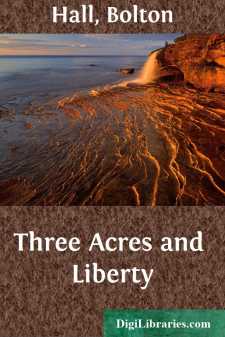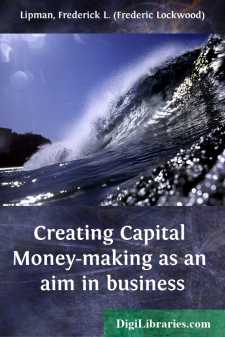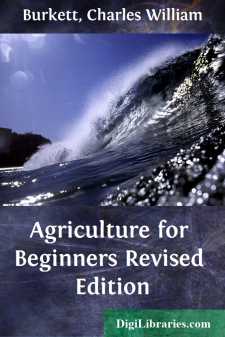Categories
- Antiques & Collectibles 13
- Architecture 36
- Art 48
- Bibles 22
- Biography & Autobiography 813
- Body, Mind & Spirit 142
- Business & Economics 28
- Children's Books 17
- Children's Fiction 14
- Computers 4
- Cooking 94
- Crafts & Hobbies 4
- Drama 346
- Education 46
- Family & Relationships 57
- Fiction 11829
- Games 19
- Gardening 17
- Health & Fitness 34
- History 1377
- House & Home 1
- Humor 147
- Juvenile Fiction 1873
- Juvenile Nonfiction 202
- Language Arts & Disciplines 88
- Law 16
- Literary Collections 686
- Literary Criticism 179
- Mathematics 13
- Medical 41
- Music 40
- Nature 179
- Non-Classifiable 1768
- Performing Arts 7
- Periodicals 1453
- Philosophy 64
- Photography 2
- Poetry 896
- Political Science 203
- Psychology 42
- Reference 154
- Religion 513
- Science 126
- Self-Help 84
- Social Science 81
- Sports & Recreation 34
- Study Aids 3
- Technology & Engineering 59
- Transportation 23
- Travel 463
- True Crime 29
Three Acres and Liberty
by: Bolton Hall
Categories:
Description:
Excerpt
FOREWORD
We are not tied to a desk or to a bench; we stay there only because we think we are tied.
In Montana I had a horse, which was hobbled every night to keep him from wandering; that is, straps joined by a short chain were put around his forefeet, so that he could only hop. The hobbles were taken off in the morning, but he would still hop until he saw his mate trotting off.
This book is intended to show how any one can trot off if he will.
It is not a textbook; there are plenty of good textbooks, which are referred to herein. Intensive cultivation cannot be comprised in any one book.
It shows what is needed for a city man or woman to support a family on the proceeds of a little bit of land; it shows how in truth, as the old Book prophesied, the earth brings forth abundantly after its kind to satisfy the desire of every living thing. It is not necessary to bury oneself in the country, nor, with the new facilities of transportation, need we, unless we wish to, pay the extravagant rents and enormous cost of living in the city. A little bit of land near the town or the city can be rented or bought on easy terms; and merchandising will bring one to the city often enough. Neither is hard labor needed; but it is to work alone that the earth yields her increase, and if, although unskilled, we would succeed in gardening, we must attend constantly and intelligently to the home acres.
Every chapter of this book has been revised by a specialist, and the authors wish to express their appreciation of the aid given them, particularly by Mr. E. H. Moore, Arboriculturist in the Brooklyn Department of Parks; Mr. Collingwood of the Rural New Yorker and Mr. George T. Powell; and to thank Mrs. Mabel Osgood Wright, and also Mr. Joseph Morwitz, for many valuable suggestions; also all those from whom we have quoted directly or in substance.
We have endeavored in the text to give full acknowledgment to all, but in some cases it has been impossible to credit to the originator every paragraph or thought, since these have been selected and placed as needed, believing that all true teachers and gardeners are more anxious to have their message sent than to be seen delivering it.
In truth, teaching is but another department of gardening.
Practical points and criticisms from practical men and women, especially from those experiences in trying to get to the land, will be welcomed by the authors. Address in care of the publishers.
The Report of the Country Life Commission, with Special Message from the President of the United States, is especially important as showing the connection of Intensive Cultivation with Thrift for war time.
It tells us that:
"The handicaps (on getting out of town) that we now have specially in mind may be stated under four heads: Speculative holding of lands; monopolistic control of streams; wastage and monopolistic control of forests; restraint of trade.
"Certain landowners procure large areas of agricultural land in the most available location, sometimes by questionable methods, and hold it for speculative purposes....







